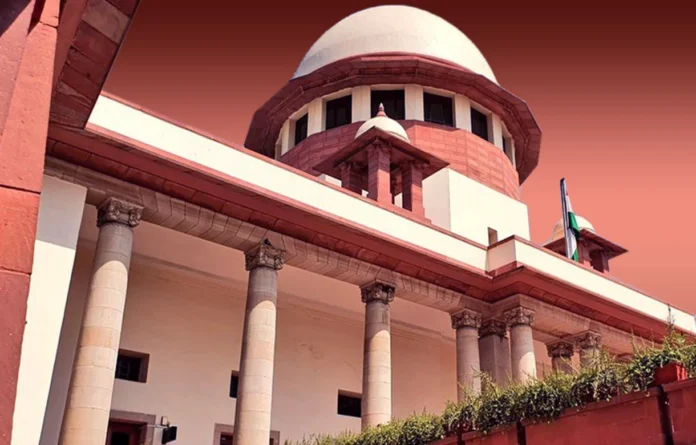The Supreme Court on Tuesday directed the vendors falling on the Kanwar Yatra route to display their licence and registration certificates, as per the statutory requirements of the law.
The Bench of Justice MM Sundresh and Justice NK Singh passed the order on interlocutory applications that challenged the recent directives issued by the governments of Uttar Pradesh and Uttarakhand, mandating the shop owners along the Kanwar Yatra route to display QR codes.
The government order enabled the pilgrims to know the details of the owners.
The Apex Court refused to go into the legality of the directives issued by two state governments in view of the fact that the Kanwar Yatra pilgrimage of this year would be ending today.
Kanwar Yatra: Supreme Court directs shop owners to display licence and registration certificates
The Supreme Court on Tuesday directed the vendors falling on the Kanwar Yatra route to display their licence and registration certificates, as per the statutory requirements of the law.
The Bench of Justice MM Sundresh and Justice NK Singh passed the order on interlocutory applications challenging the recent directives issued by the governments of Uttar Pradesh and Uttarakhand, which mandated the shop owners along the Kanwar Yatra route to display QR codes.
The government order enabled the pilgrims to know the names and identities of shop owners.
The Apex Court refused to go into the legality of the directives issued by the two state governments in view of the fact that the Kanwar Yatra pilgrimage of this year would be ending today.
One of the petitions, filed by Professor Apoorvanand, contended that the orders issued by the governments of Uttar Pradesh and Uttarakhand could lead to religious profiling of vendors along the Kanwar Yatra route, along with polarisation and discrimination in the states.
Noting that the directives had no backing in the law, the petitioner argued that the directions were contrary to the interim order passed by the Apex Court in 2024, ruling that sellers could not be forced to disclose their identities.
It said although the eateries were legally obliged to obtain licences and display them, the same needed to be displayed only inside the premises.
The state governments’ decision, however, made it compulsory for the vendors to display their names and identities on the billboards outside, which was an overstep.
Filed through AoR Akriti Chaubey, the plea warned that the directive may cause mob violence, especially against vendors belonging to minority communities.
It said the directive to reveal religious and caste identities couched under the garb of lawful licence requirement, was a breach of privacy rights.
The requisite licence was a self-contained certificate, which although revealed the name of the owner, displayed inside the premises at a place where it may be accessed.
Equating this requirement to display a normal-sized licence with the directive to display name of owner, manager and other employees on billboards outside, or to not give eateries names which did not reflect the religious identity of the owner, were de hors the licence requirements, it added.
The interlocutory applications were filed in the writ petitions moved in 2024, challenging the last year’s orders, mandating display of names of owners and staff. The petitioners included AITC MP Mahua Moitra, Association for the Protection of Civil Rights, and activist Aakar Patel.


